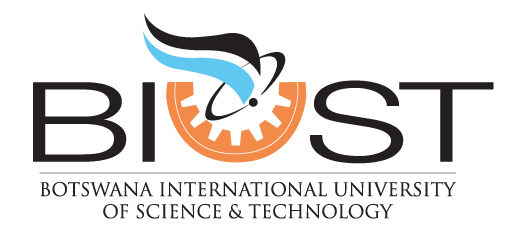The Botswana International University of Science and Technology (BIUST) is committed to providing a stimulating environment of discoveries and learning for present and future scientists and technologists and being a catalyst for change. BIUST, in collaboration with the Max Planck Gesellschaft (Germany), is hosting the inaugural BIUST Max Planck African Astronomy School (BMAAS) 2023.
This is a two-week residential astronomy school for graduates and advanced undergraduate students who are starting astronomy research in Africa. The school programme aims to teach students specific aspects of astronomy, astrophysics, and space science, with a focus on topical research, future opportunities, and practical skills.
Speaking at the welcoming ceremony, the Acting Dean, Faculty of Science Professor Amare Gassesse, noted that the Faculty of Science is in the process of strengthening the Astronomy unit, where they will start undergraduate and postgraduate programs. “I hope that you will collaborate with our experts to advance the field in Africa and benefit the people of Africa,” he said.
For his part, the Chair of the Scientific Organizing Committee, Max- Planck Institute for Astronomy in Heidelberg, Germany, Dr Coryn Bailer- Jones cited that the Max Planck Society (MPS) comprises 80 institutes, doing research in different areas of science, with five focusing on astronomy.
When giving an overview of the BMAAS, Jones noted that the school emerged from a desire from MPS to improve research connections with academic institutes in Africa. This recognizes the significant scientific potential of African researchers and acknowledges the contribution the MPS could make to build science capacity on the continent. Jones highlighted that the MPS has generously provided funding to support this African astronomy initiative in the form of research schools, visits for African PhD students to Max Planck Institutes, and joint supervision of PhD students between
African and MPS scientists. Adding to that, this school is the first action in the programme.
“We have research excellence within the MPS, and part of our mission is to share this with others. We hope that African students can benefit from the teaching at the school, but also the interaction with senior scientists from many countries inside and outside Africa, and of course from each other,” he noted.
Ideally, he added, this could lead to research visits to other institutes. By nurturing the ultimate resource that any country can offer – its people – we hope to set up partners we can work with in the future for our mutual benefit.
In conclusion, Jones mentioned that there were 12 lecturers from eight countries in Africa and Europe covering various topics that included Galactic and extragalactic astronomy, exoplanets, statistics and machine learning. He said about 33 PhD, MSc, and BSc students from 15 African countries were selected from over 120 applicants by an international organizing committee.
When giving a keynote address, Vice-Chancellor Professor Otlogetswe Totolo indicated that to further solidify the BIUST ambitions, the Executive Management Team sanctioned a 5-year development plan for Astronomy and Planetary Science in December 2020 that will run until the 2025/26 financial year. “This plan entails the further enhancement of the staffing required to run our new astronomy degrees and to exploit the three precursor projects that will form a foundation for the international Square Kilometer Array (SKA) Phase 2 and ultimately lead to the formation of a Centre of Excellence in astronomy,” he said. Furthermore, Professor Totolo highlighted that the government of Botswana and many African countries are aspiring to build expertise, capacity and infrastructure to harness Space Science and Technology as one of the new engines of growth for the future as a significant part of their drive to move towards a fourth industrial revolution (4IR) and digital transformation.
“I am proud to say that BIUST is central to realizing the aspirations of the Botswana Government in this regard, and among the staff participating in the school are those talented individuals at BIUST who are helping us achieve our aspirations,” he said.
In closing, the Vice-Chancellor extended his gratitude towards the organizers of the school for their hard work and the Max Planck Society and the African Astronomical Society for providing the essential external funding.
